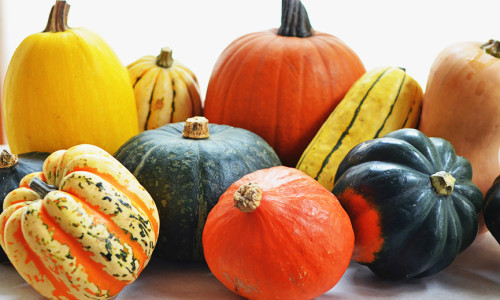when the seeds within have matured fully and the skin has hardened into a tough rind. At this stage, most varieties of this fruit can be stored for use during the winter. It is generally cooked before eating.Winter squash is low-calorie and a good source of complex vegetable carbohydrates anddietary fiber.It is an excellent source of vitamin A, a great source of vitamin C, potassium, dietary fiber and manganese, and a good source of folate, omega-3 fatty acids, vitamin B1 (thiamin), copper, tryptophan, vitamin B6 (pyridoxine), vitamin B3 (niacin) and vitamin B5 (pantothenic acid)


